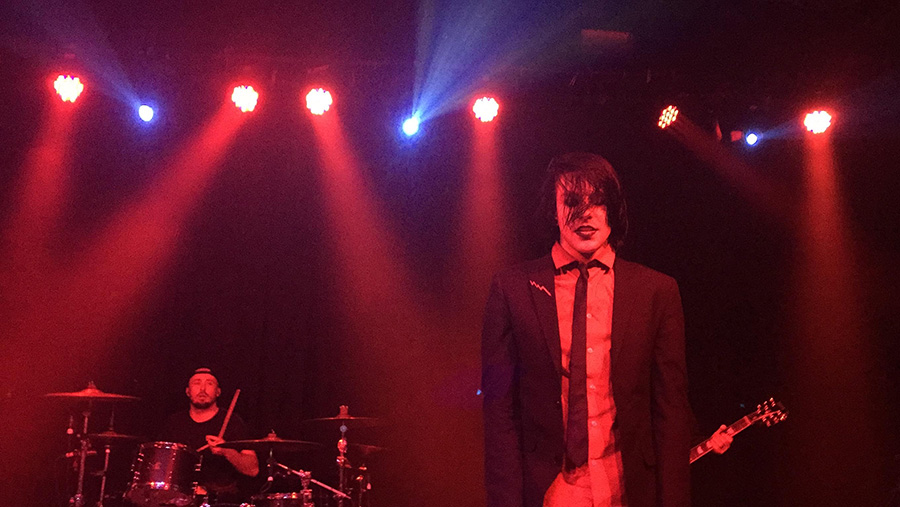Opinion: Music industry needs to stop romanticizing mental health
Patty Walters, singer of UK rock band As It Is, brings up the point of artists in the alternative music scene romanticizing mental illness in their music. This harms individuals that suffer from various mental disorders, while desensitizing people to the ugly reality that is mental illness. In order to break down the stigma surrounding mental illness and put an end to the glorification of it in music, artists need to begin normalizing mental illness.
Content warning: This story contains themes of mental health and suicide.
The music industry can be divided into two categories: those who embrace mental health and those who romanticize it. When it comes to the alternative scene and all of its subgenres, artists tend to romanticize mental illness, feeding into the ever-growing stigma that hinders people from speaking out about mental illness in the first place.
It seems that most songs from the alternative genre, in some way or another, deal with the topic of mental health. This is by no means a negative thing — speaking up about mental health is an important thing to do, especially when you have such a large platform. The issue arises when artists talk about the beauties of having a mental illness.
These artists will write songs about how quirky it is to have anxiety or how “poetic” suicide is. This accomplishes nothing other than raising a generation of emotionally distant teens.
Most people, myself included, get into the alternative side of music around age 13. Listening to music about how beautiful mental illness is highly toxic for someone with such a young, impressionable mind. It teaches these children that beauty parallels having an unwell mind.
Mental illness is an ugly thing. It feeds lies into your subconscious, alters your outlook on the world around you, and slowly breaks down your physical health. Downplaying the struggle people with mental illness face on a day to day basis can undermine their emotions and experiences, causing them to fall further down a spiral of darkness.
So when we have alternative artists downplaying the struggles of mental illness to a highly impressionable age group, catastrophe is bound to happen. These songs can influence adolescents into thinking that having a mental illness is something beautiful that will make them appear more desirable. Not to mention these songs have the potential to invalidate the emotions of people who struggle with legitimate mental health issues.
Approximately 10-20% of adolescents face some type of mental illness without realizing it. This percentage arguably faces the most danger when it comes to songs glorifying mental illness. If people do not know they have a mental illness and they hear these songs, they may try to refute their own emotions.
Ignoring emotions can lead to internalization, which over time, can make people completely numb to their surroundings, physically and emotionally. Being numb for a long period of time can take a person down a dark path, often resulting in a dissociative disorder, or in extreme cases, suicide.
So, where does that leave us? How do we fix the developing trend in the alternative scene that glorifies mental illness?
If artists embrace mental illness as a character flaw rather than an attractive personality trait, then I believe that we can put an end to this horrifying trend in the alternative scene. We should be writing songs about the ugly truth of mental illness rather than songs about the “beauties” of mental illness.
Patty Walters, the lead singer of the UK rock band As It Is, has expressed his concern for this growing trend. Walters is no stranger to mental health conversations. Leading up to the release of the band’s third studio album, “The Great Depression,” Walters would actively speak out about the dangers of romanticizing mental illness.
At the band’s 2019 concert in Atlanta, Walters went on a tangent about the glorification of mental illness in the music industry: “[W]e as a society and a scene romanticize and glamorize and even fetishize depression, anxiety, self-harm, and suicide.”
Walters went on to describe As It Is’ record “The Great Depression” and how the band proposed we flip the script. “ We wanted to completely reconstruct the way we look at [mental illness], which is not that it is beautiful, but also not that it is ugly,” Walters said.
The goal is to normalize mental illness, not further stigmatize it. The issue with normalizing mental illness is the possibility of artists taking advantage of it and romanticizing it further. It is something we will have to take one step at a time, starting with opening the floor for people to share their experiences, much like Walters did with “The Great Depression.”
With more artists opening up about their own real experiences with mental illness, we can alter the way mental health is perceived in the music industry.
Mental illness is not beautiful. It breaks you down beyond repair sometimes, but it is something that almost every single person will go through at some point in their lives. It is something that needs to be normalized, and it begins with alternative artists ceasing to romanticize mental illness so society can see the true negative effects it can have on a person.
Opinions expressed in editorials are those of the writer(s). These views may not represent the adviser, The Prowler, advertisers/sponsors, the Starr’s Mill High School administration or staff , or Fayette County Public Schools as a whole. Please see our FAQs for more information pertaining to the rights of The Prowler’s staff members.


